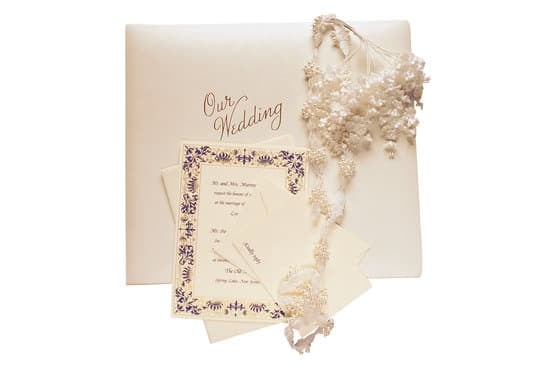Planning a wedding can be both exciting and overwhelming, with numerous decisions to make and details to consider. One essential tool in the wedding planning arsenal is a wedding vendors checklist. This comprehensive list helps couples stay organized, ensuring that every aspect of their special day is carefully planned and executed. From choosing the perfect venue to selecting the ideal caterer and entertainment, a wedding vendors checklist serves as a roadmap for a successful wedding planning process.
As couples begin their journey towards matrimony, one of the first items on their checklist should be selecting the right wedding venue. Factors such as capacity, location, amenities, and aesthetic appeal all play a crucial role in determining the perfect setting for the big day. The venue sets the tone for the entire event, making it an important decision that should not be taken lightly.
Following the selection of a venue, attention turns to catering, photography, videography, entertainment, floral arrangements, decor, officiant services, transportation, and budget planning. Each vendor category plays a vital role in creating unforgettable moments and bringing the couple’s vision to life. By carefully considering each element on the wedding vendors checklist, couples can ensure that their special day runs smoothly and seamlessly from start to finish.
Venue
When it comes to planning a wedding, one of the most crucial decisions to make is choosing the perfect venue. The wedding venue sets the tone for the entire celebration and plays a significant role in creating memorable moments for the couple and their guests. To ensure that you select the ideal location for your special day, it is essential to keep a detailed wedding vendors checklist that includes key considerations such as capacity, location, and amenities.
Capacity
The first thing to consider when selecting a wedding venue is its capacity. It is vital to know how many guests you plan to invite before finalizing a venue, as you want to ensure that there is enough space for everyone to feel comfortable.
Some venues may have minimum or maximum guest requirements, so be sure to inquire about this early in the planning process. Whether you are having an intimate gathering or a grand affair, choosing a venue with the right capacity is crucial for a successful event.
Location
The location of your wedding venue can significantly impact the overall experience for both you and your guests. Consider factors such as proximity to accommodation options for out-of-town guests, ease of access for everyone attending, and the backdrop scenery for your ceremony and reception. Whether you dream of exchanging vows on a picturesque beach or hosting a sophisticated urban affair, selecting a location that aligns with your vision will enhance the beauty and charm of your special day.
Amenities
Another important consideration when choosing a wedding venue is the amenities it offers. From parking facilities and catering options to bridal suites and audiovisual equipment, ensure that the venue has all the amenities necessary to fulfill your needs on your wedding day.
Some venues may provide in-house services such as event coordination or preferred vendor lists, which can simplify the planning process for couples. By prioritizing venues with desirable amenities on your wedding vendors checklist, you can create a seamless and unforgettable experience for all involved on your big day.
Catering
When it comes to planning a wedding, selecting the right caterer can make a significant difference in how your guests remember the big day. To ensure that the catering aspect of your wedding is a hit, it is essential to create a comprehensive wedding vendors checklist that includes finding the perfect caterer.
This checklist will help you stay organized and focused on meeting your specific requirements, such as taste preferences, budget constraints, and any dietary restrictions that need to be accommodated.
Understanding Your Taste Preferences
Before even beginning to look for potential caterers, sit down with your partner and discuss your food preferences. Whether you have a particular cuisine in mind or want to incorporate family recipes into the menu, having a clear idea of what you both enjoy will guide your selection process. Make sure to also consider any dietary restrictions or allergies among your guests when finalizing the menu choices.
Setting a Realistic Budget
Catering costs can quickly add up, so it’s crucial to establish a realistic budget for this aspect of your wedding. Research average catering costs in your area and determine how much you are willing to spend on food and beverage services. Keep in mind that some caterers may offer package deals or customizable options that can help you stay within budget while still providing delicious meals for your guests.
Considering Dietary Restrictions
In today’s diverse world, it’s common for weddings to have guests with various dietary restrictions, whether due to allergies, religious beliefs, or personal preferences. When selecting a caterer, make sure they are experienced in accommodating different dietary needs and can provide alternatives for guests with specific requirements. Communicate any dietary restrictions clearly with your chosen caterer to ensure that everyone can enjoy the meal without any issues.
By following these tips and including catering in your wedding vendors checklist, you can be confident that you’ll find a caterer who not only matches your taste preferences but also fits within your budget and accommodates any dietary restrictions present among your guests. A well-thought-out catering plan will undoubtedly elevate the overall experience of your special day and leave lasting memories for both you and your loved ones.
Photography and Videography
In addition to talent and style, another important factor to consider when hiring photographers and videographers is their experience in capturing weddings. Experienced professionals have a keen eye for detail, anticipation of key moments, and the ability to adapt to various lighting conditions throughout the event.
This level of expertise ensures that your wedding day is documented flawlessly, allowing you to relive each moment through stunning photographs and cinematic videos. Prioritizing experienced vendors in this category can help alleviate stress on the big day, knowing that these professionals are well-prepared to handle any situation that may arise.
Furthermore, communication is key when working with photographers and videographers for your wedding day. Clearly articulating your expectations, preferences, and any specific shots or moments you want captured can help ensure that the final deliverables meet your desires.
Establishing a timeline for photo sessions, video shoots, and editing processes is also important to keep everything organized and on track leading up to the wedding day. By carefully selecting talented photographers and videographers who understand your vision and communicate effectively with you throughout the process, you can rest assured that your wedding memories will be beautifully preserved for a lifetime.
| Aspect | Importance |
|---|---|
| Talent & Style | Essential for capturing desired aesthetic |
| Experience | Key in handling various situations during the event |
| Communication | Ensures alignment of expectations for final deliverables |
Entertainment
One of the first things to consider when it comes to wedding entertainment is whether to go with a DJ, live band, or other options like photo booths or solo musicians. Each option offers a different vibe and atmosphere, so it’s important to align the choice with the overall theme and feel of the wedding.
DJs are versatile and can play a wide range of music genres, while live bands bring energy and live performance that can truly wow guests. Photo booths provide a fun interactive element that allows guests to capture memories in a unique way.
When choosing entertainment vendors for your wedding, it’s essential to consider factors such as their experience, repertoire, and style. Ask for samples of their work, whether it’s a mixtape from a DJ or videos of live performances from bands.
Additionally, don’t forget about discussing logistics such as setup time, equipment requirements, and any specific requests you may have. By taking the time to carefully select your wedding entertainment vendors and including them in your wedding vendors checklist, you can ensure that your special day will be one filled with joy, love, and unforgettable moments.
| Aspect | Considerations |
|---|---|
| Music Genre | Match entertainment choice with wedding theme |
| Experience | Review samples of work and ask for references |
| Logistics | Clarify setup time requirements and equipment needs |
Floral and Decor
When it comes to planning the decor and floral arrangements for your wedding, having a clear vision and working with the right vendors can truly transform your special day. To ensure that your wedding venue is beautifully adorned with flowers and decor that reflect your personal style, it’s essential to create a detailed wedding vendors checklist.
This checklist will not only help you stay organized but also make sure that every aspect of your floral and decor needs are met.
To kick off your journey into the world of wedding flowers and decor, here are some key considerations to keep in mind:
- Selecting a Florist: Finding the right florist who understands your vision and can bring it to life is crucial. Look for florists who have experience in creating stunning arrangements for weddings and schedule consultations to discuss your ideas.
- Designing a Theme: Whether you want a romantic garden-inspired theme or a modern minimalist look, designing a cohesive theme for your wedding decor can tie everything together. Consider factors like color palette, seasonality, and overall aesthetic when conceptualizing your decor.
- Coordinating with the Overall Aesthetic: Your floral arrangements and decor should complement the venue’s ambiance and add to the overall feel of your big day. Work closely with your florist and decorator to ensure that every detail, from centerpieces to aisle decorations, enhances the beauty of your celebration.
By including these elements in your wedding vendors checklist and collaborating with talented professionals who understand your vision, you can create a visually stunning setting that will leave a lasting impression on you and your guests on this momentous occasion.
Officiant
When planning a wedding, one crucial aspect to consider is the role of the officiant in the ceremony. The officiant plays a significant part in tying the knot for the couple and setting the tone for their special day. Finding an officiant who resonates with the couple’s beliefs and values is essential to creating a meaningful and personalized ceremony. Here are some key points to consider when selecting an officiant for your wedding:
- Religious Affiliation: Determine if you want an officiant from a specific religious affiliation or background to conduct your ceremony.
- Personal Connection: Meet with potential officiants to gauge their personalities and ensure there is a comfortable and genuine connection between them and the couple.
- Ceremony Style: Discuss the style of ceremony you envision, whether it be traditional, modern, spiritual, or personalized, to see if the officiant can accommodate your preferences.
It’s important for couples to communicate their expectations and desires with their chosen officiant to ensure that the ceremony aligns with their vision for their special day. Whether you opt for a religious or secular ceremony, finding an officiant who understands and respects your beliefs will help create a memorable and heartfelt wedding experience.
Remember that the officiant will play a significant role in shaping one of the most important moments of your life together. Take your time in selecting someone who not only meets your practical needs but also connects with you on a personal level. By including this step in your wedding vendors checklist, you can ensure that your ceremony reflects your unique love story and values as a couple.
Transportation
When it comes to planning a wedding, transportation is often an aspect that can be overlooked but plays a crucial role in ensuring a seamless and stress-free day. One of the key considerations when selecting wedding transportation is the style that best fits the overall theme and vibe of the event. Options range from classic limousines to vintage cars, modern luxury vehicles, or even unique modes like horse-drawn carriages or trolleys.
It is essential to assess the logistical needs of the day when choosing wedding transportation. Consider factors such as the distance between venues, the number of guests requiring transportation, and any specific route requirements. Communicating these details clearly with your chosen transportation provider will help ensure smooth coordination on the wedding day and avoid any last-minute surprises or delays.
Another important aspect to keep in mind is budgeting for transportation expenses within your overall wedding budget. Research different providers, compare pricing packages, and inquire about any additional costs such as overtime fees or fuel surcharges. By carefully planning and organizing your wedding transportation ahead of time, you can guarantee that you and your guests arrive at each location comfortably and punctually, leaving you free to enjoy every moment of your special day.
Budget Planning
When it comes to planning a wedding, creating a comprehensive budget is essential to ensure that the couple’s dream day does not turn into a financial nightmare. One of the most critical aspects of budget planning is allocating funds for each vendor category.
From the venue to catering, photography, entertainment, and more, each vendor plays a crucial role in making the wedding day special. By outlining how much of the overall budget will be allocated to each vendor category, couples can prioritize their spending and avoid overspending in one area at the expense of another.
Negotiating contracts with wedding vendors is another essential step in budget planning. Many vendors are willing to work within a couple’s budget constraints, especially if they feel that they are a good fit for their wedding.
Couples should not hesitate to discuss pricing options, ask for discounts or package deals, and clarify any additional fees before signing on the dotted line. Being open and honest about their budget limitations can often lead to mutually beneficial agreements that satisfy both parties involved.
Managing expenses throughout the wedding planning process is key to staying within budget. Keeping track of invoices, payments, and any unforeseen costs that may arise can help couples maintain financial control and prevent overspending.
By creating a detailed spreadsheet or using budgeting tools available online, couples can monitor their expenses closely and make adjustments as needed to ensure that they do not exceed their allocated budget for each vendor category. With careful planning and financial discipline, couples can create a magical wedding day without breaking the bank.
Conclusion
Planning a wedding can be an overwhelming task, but having a wedding vendors checklist in place can make all the difference in ensuring a smooth and successful day. By meticulously outlining each category of vendors needed for the wedding, couples can stay organized, focused, and on track throughout the planning process. From selecting the perfect venue to finding the right officiant and coordinating transportation, a well-thought-out checklist serves as a roadmap to bring your dream wedding to life.
One of the key benefits of having a wedding vendors checklist is that it helps couples prioritize what aspects of their special day are most important to them. By allocating budget based on these priorities and carefully vetting potential vendors within each category, couples can create a personalized and unforgettable experience for themselves and their guests.
This thoughtful approach not only ensures that every detail is taken care of but also minimizes unnecessary stress and last-minute decisions during the final stages of planning.
In conclusion, creating a comprehensive wedding vendors checklist is essential for any couple embarking on the journey of planning their big day. By following this guide and staying organized throughout the process, couples can set themselves up for a successful wedding day filled with beautiful memories that will last a lifetime.
Remember to communicate openly with your chosen vendors, stay flexible with your plans when necessary, and most importantly, savor every moment of this special time in your lives. Happy planning.
Frequently Asked Questions
What Is a Vendor List for a Wedding?
A vendor list for a wedding is essentially a compilation of all the different vendors or service providers that will be involved in the wedding day. This can include vendors like florists, caterers, photographers, DJs, and more.
What Services Are Needed for a Wedding?
There are numerous services that may be needed for a wedding to run smoothly.
Some essential services include a venue for the ceremony and reception, catering for food and beverages, photography and videography to capture memories, entertainment such as music or DJ services, decorations and flowers for aesthetics, transportation for the wedding party, and possibly coordination services to ensure everything goes according to plan.
What Is the Standard Tip for Wedding Vendors?
The standard tip for wedding vendors can vary depending on the service provider and their level of involvement in the wedding. Generally speaking, tips can range from 15-20% of the total cost of services provided.
However, it is always best to refer to specific guidelines within each vendor’s contract or agreement to determine if they have any pre-established tipping policies in place. It’s also crucial to consider the quality of service received when deciding on an appropriate tip amount for each vendor.

I have been involved in marriages for over 20 years helping couples and singles understand more about them.





